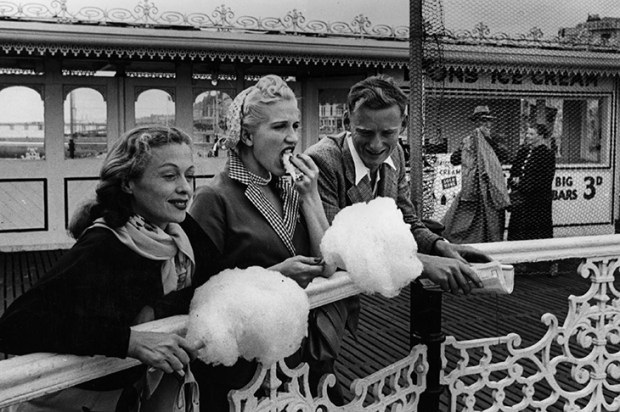Whereas in an unabashed thriller, in the TV series The Missing, for example, the object of the exercise is well understood — a child is lost — and the viewer, with certain advantages, rides through the unfolding events saddled up on the back of a questing protagonist, in Alison Moore’s Missing, as in her Booker-shortlisted first novel The Lighthouse, the reader is placed in a very different position.
Jesse Noon, a divorced mother approaching 50, is followed round her house in Hawick in the Scottish Borders by a cat and a dog, and the reader follows too. Something is wrong — several things. One morning less than a year earlier, her partner Will, a train driver, upped and left, leaving a message written on a steamed-up mirror. He had hoped for a child that ‘never appeared’.
By default, Jesse has acquired his dog. She is also estranged from her son, Paul, the product of a brief early marriage. She has just returned early from a conference on literary translation, her trade, in London. Deafened and disorientated by a blocked ear, she could barely participate. Waiting for a bus in Carlisle, she meets Robert, who also lives in Hawick, and a tentative relationship develops over encounters in Morrisons and shared meals.
She remembers things — or doesn’t: in a separate, weighted strand of the narrative headed ‘1985’, we catch glimpses of the teenage Jesse travelling to France with her sister Gail and her husband, as baby-sitter to her niece Eleanor; and of her friendship with Amy, from whom she poached the man who briefly became her husband. She had bought the house in Hawick believing it to have once belonged to her great-great-grandmother. She thinks it might be haunted. She reads one biography of D.H. Lawrence after another. Pain and grief seem to lurk behind every object, every reflection, but the elements of the plot assemble slowly. The thickening agent is the deft manipulation of motifs and themes.
In The Lighthouse, the reader is drip-fed information about two very different lives, both charged with unhappiness, that intersect explosively in a hotel in Germany. So compelling is the build-up, that the climax is silent — as if the explosion had beaten the reader to the punch. The same highly engineered, drip-feed technique is applied in Missing, but the crisis never comes. What does come is more drift-like, rhythmical and mysterious: change.
Got something to add? Join the discussion and comment below.
Get 10 issues for just $10
Subscribe to The Spectator Australia today for the next 10 magazine issues, plus full online access, for just $10.
You might disagree with half of it, but you’ll enjoy reading all of it. Try your first month for free, then just $2 a week for the remainder of your first year.














Comments
Don't miss out
Join the conversation with other Spectator Australia readers. Subscribe to leave a comment.
SUBSCRIBEAlready a subscriber? Log in